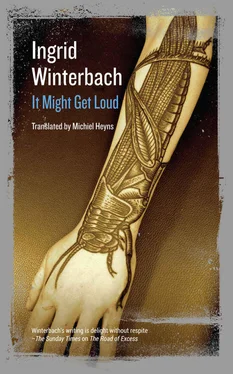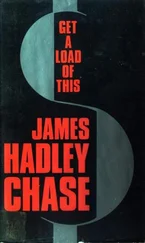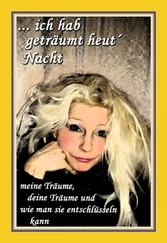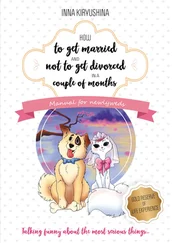Then Karl takes his brother’s cool, dry hand in his and presses it against his cheek.
He asks one of the nurses (the one who seems most sympathetic) please to place a saucer with a bean under damp cotton wool next to Iggy’s bed as soon as he comes to. She knows, doesn’t she, he says, the bean will start germinating eventually. The nurse doesn’t know if it will be possible. She’ll find out from the doctor. It’s not really the hospital’s policy to allow patients to keep plants in their rooms.
A germinating bean under cotton wool isn’t exactly a plant, says Karl. Ye-es, says the woman, but the saucer is the actual problem. Nothing is allowed with which patients could injure themselves.
When he says good bye to him, Jakobus says he’ll drop in on Iggy from time to time to see how he’s doing. He’ll keep Karl informed.
‘Your brother is a good man,’ says Jakobus, ‘but he came up against greater forces than most people can cope with — Josias and the Sheddim combined make a formidable pair. And Josias apparently just triggered a spark in Ignatius. Something that may have lain dormant for a long time.’
*
On the trip back Karl keeps his eyes glued to the road. He stops as little as possible. Only to pee and to eat. He thinks he must be very tired, perhaps even a bit ill or delirious, because the landscape speeding past is sometimes black-and-white and then again it erupts in colour: streaks of vicious red, the yellow and green of toxic fungi. Even this barren Karoo landscape. The landscape at times seems tilted, as if everything is lying on a hellishly steep slope, against which rock, shrub and stunted tree cast smouldering fire-blackened shadows. Karl thinks his vision may have been disturbed by everything that happened.
It’s perfectly possible that Josias is a thug, he thinks, and as Jakobus said, triggered something dormant in Iggy. But if he thinks how Iggy lay there, and especially what he wrote, then he wonders if Iggy didn’t after all muck down some abyss or other, and lose his soul, as the Joachim-chap warned. The further he travels, the more irreversible Iggy’s condition seems to him. Perhaps he’s just tired, he thinks. Perhaps all is not lost. Perhaps it just feels that way to him. But how is it possible, he wonders, that even the deepest sleep — induced by Doctor Lonesome — could cure Iggy of his delusions? Surely no sleeping cure could be radical enough to enable Iggy to experience the world as he did before his torments. To see the world like that even once must have radical consequences.
The suspicion that torments him all the way back is that he has lost his brother. Once again he speeds all but unseeingly through the landscape (there’s no curing him of that); overwhelmed by a kind of edgy desolation. An immense sadness that drains everything of colour.
He drives back by the same route as he came. Past Touws River where he saw the dead bird, Laingsburg where he almost had himself hypnotised by Doctor Bruno. Through Beaufort West where he met Elzette at the Club Take-a-Break outside the town, and where he was potted in the leg in the cemetery the next day. Maybe he should go and look up Elzette and ask her to marry him. They can live in a big old house in the town, with Iggy in a spacious room in the back garden — safely out of reach of Josias the Godknows genius maker of plans, and Joachim the initiate. He and Iggy can take a walk every day in the mountain; the open air can only do them both good. Iggy can paint and garden — a vegetable garden full of beans, tomatoes and sweet peas; whatever one plants in a garden.
Idle fantasies, thinks Karl, idle amusement to keep the misery at bay. If only it were so simple — both in his and in Iggy’s case. Elzette is already engaged to one of her colleagues teaching with her, with whom she cycles around in the mountain in the late afternoon, and she’s certainly not a woman who is in the long run going to take to Karl’s music, to his tattoos. And even though she seems like a friendly, open person who doesn’t judge other people too readily, his afflictions would probably in the long run get on even her nerves. Besides, his deepest desire is that he and Juliana will get together again.
He drives past Hanover, where his car packed up, past Colesberg where he met Stevie and his two friends that evening, and also, alas, was accosted by the Joachim-chap with the beetroot claw. Only at the Orange River does he pull up and get out. He stands on the bridge by the parapet. Here he thought he’d like to stand with Iggy — as if it would ever be possible again — so that together they could watch the broad, still flow of the river. Past Bethulie where he picked up the parcel with Iggy’s letters (he has still not given any thought to the question of how on God’s earth it ended up there , too many other, more urgent inexplicables have claimed his attention). Past Smithfield where Ollie of Steynsrus mistook him for someone else.
He drives without stopping for long at any of the places where he eats. He drives till he reaches Durban. Tonight he’ll listen to Accept’s new album with Hendrik again, the one with the bloody fist on the cover, and God knows, he can only hope and pray that Accept and Hendrik will help him to overcome his feelings of desolation, because he thinks what happened to his brother has permanently affected him too. If Iggy can never be the same after what happened to him, then Karl can also not be the same after what happened to Iggy.
He never did get round to googling the Sheddim, nor Johanna Brandt, and he doesn’t think he ever will. Enough grief already, the Sheddim and thoughts about the Sheddim have caused him. Of that kind of thing he never wants to hear anything again. For him it’s too much part of a demonic underworld in which poor Iggy — possibly for ever — lost his way.
When he unlocks his flat, he realises that on the whole trip back he didn’t count once.
*
A few months later Jakobus lets him know that by order of Public Works they have to vacate the farm on the slopes. He sometimes wonders, says Jakobus, if it’s not a consequence of the curses that Ignatius called down upon Josias and the whole outfit that day.
MARIA HEARS NOTHING FROM BENJY, which means that for the time being he’s not embroiled in any crisis. Two days after her visit to Tobie Fouché she’s phoned by Laura, Sofie’s daughter. She wants to come and say hello to Maria. Maria is pleasantly surprised. Laura was at Sofie’s memorial service and disappeared again immediately afterwards; where to, nobody knew exactly.
Maria is glad to see her. Laura is tall, with her mother’s dark eyes and hair. Her gaze is also like Sofie’s: half-withdrawn, a bit mistrustful, but intense. She is still somewhat awkward, with her lanky limbs, still something of an adolescent, although she is a woman deep in her twenties. Like Sofie, clearly not someone for small talk.
What does she do? She lives somewhere in the Eastern Cape, near Grahamstown, on a smallholding with her seven big dogs. She is writing a PhD in anthropology. Apart from the dogs, and her books, her only worldly possession is a big, clapped-out pick-up truck. Self-evidently not someone who sets much store by material goods. That would certainly meet with Sofie’s approval.
She’s not here for chit-chat. The child wants to talk about her mother. That Maria fully understands. Isn’t that why she herself is here, why she visited Tobie? Has she seen Tobie yet? asks Maria. No, the two of them never really saw eye-to-eye. Maria says nothing about her own visit to him and about the dog breeder — the only person, according to Tobie, that Sofie had been close to in her last few months.
How often did she see her mother in the months before her death? Maria asks. Not that often, says Laura. She got the impression that her mother preferred it that way. That she had started turning away from them — from her and her brother, that was how he also experienced it. What gave her that impression? asks Maria. She remembers that when she was small, says Laura, her mother’s eyes sometimes seemed to be saying goodbye. Now her mother had that look in her eyes again. Did she show anything, say anything from which Laura could deduce the nature of her intentions — no last letter, no phone conversation? Nothing, says Laura. Nothing, nothing, nothing. Nor did she leave anything behind, no last letter or note. Maria says nothing about the red book. Nor about the Ten Gates.
Читать дальше












